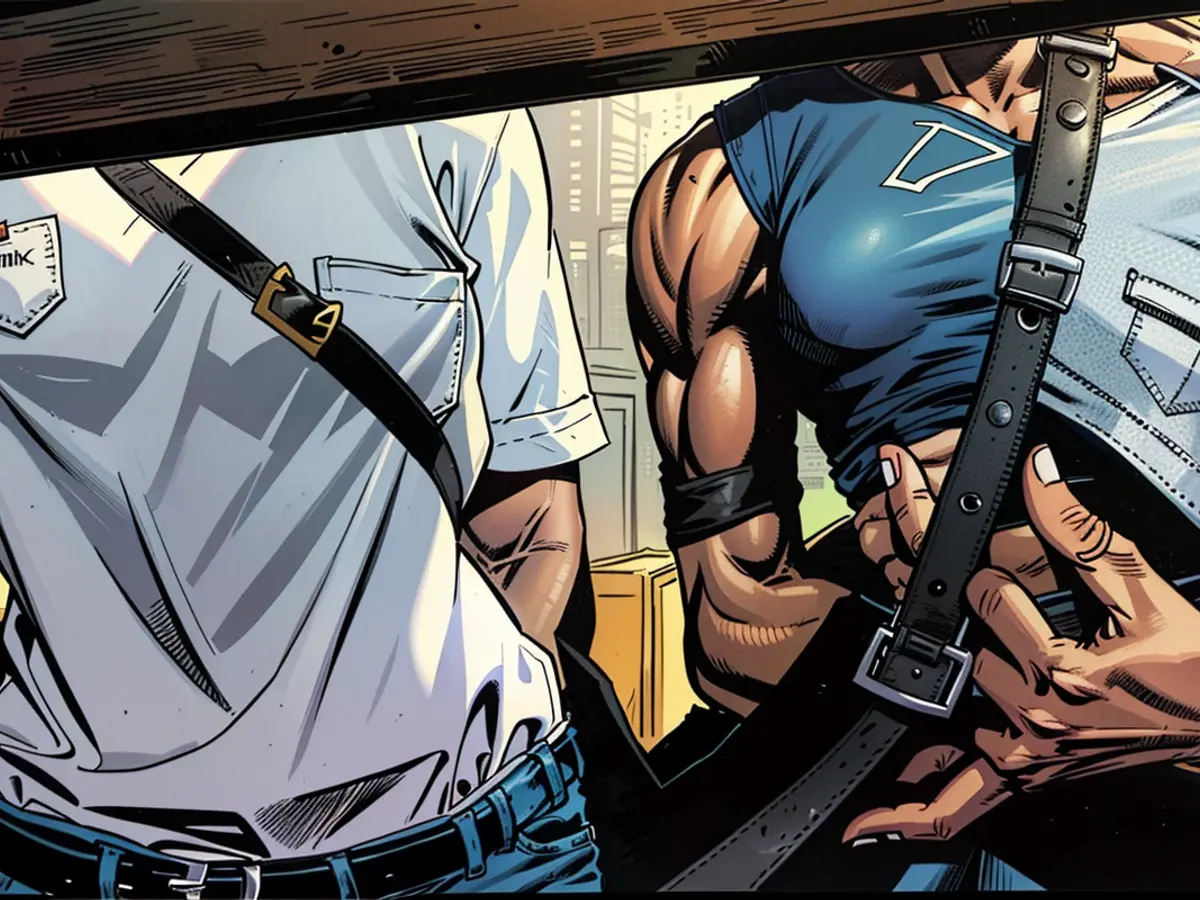Unraveling the Mystery of "Talahons" in the TikTok Sphere
One of the contenders for the Young Person's Phrase of the Year is "Talahon". It refers to young men who perpetuate the image of phony designer handbags and gold chains on social media. It's advised to avoid generalizations.
These young men, often with a migratory background, sport fake designer clothes and wander through city centers with a fanny pack, tracksuit, and gold chain. Some also espouse outdated views on women. That's the stereotype. Currently, these so-called Talahons are causing a stir and occasionally provocative debates about migration and youth culture on social media.
The term has been put forward for Young Person's Phrase of the Year and is attracting even more attention. But what exactly does it represent - and why can the term be problematic? Initially, the term is said to come from Arabic, according to the Langenscheidt Verlag, which awards the Young Person's Phrase annually. "Tahal lahon" means "come here" and is supposedly used for people with stereotypical features or behavior.
Rapper's track goes viral
On TikTok or Instagram, particularly young people are presenting themselves as the supposed typical Talahon, for example, with a Gucci cap and shaved sides ("sides on zero"). In other posts, some express their views on women, such as not allowing their potential girlfriend to go to the swimming pool alone. These posts are often set to the song "TA3AL LAHON" by rapper Hassan. He released the track ("I'll give you a stab, I'm the patron") in 2022, and the music video clarifies that the lyrics are fictional and the video is for entertainment purposes only. Now, the song is gaining popularity on social media.
Furthermore, an Edeka branch in Lower Saxony once had a shelf labeled "Talahon," stocked with trendy products like sodas or chocolate bars also found in snack machines. However, due to controversial discussions about the term, the store decided to remove the sign above the shelf.
"There is no one Talahon"
"There is no one Talahon. Ultimately, it's a very diverse and not a uniform phenomenon," says social scientist Gabriele Rohmann, co-director of the Archive of Youth Cultures in Berlin. Not all Talahon videos are genuine. Many of them process the trend satirically. One user, for example, behaves like a doctor who acts like a Talahon. Others use their videos to hold society up to the mirror to some extent.
However, Rohmann points out, "Some embrace it, and misogynistic views sometimes play a role, which is problematic. These young people must be shown the lines and told: 'Stop. That's not how it's done,' and work with them to question and abandon these attitudes and behaviors."
The Talahon style, according to Rohmann, is not new. It has simply gained more prominence through the popularity of Hassan's song, even among female users who show themselves as the female equivalent - Talahinas. For Rohmann, this is a kind of "game between boys and girls" that can be observed in various youth cultures.
Racist comments "a very dangerous story"
But not everyone endorses the trend. On the contrary, it serves as fuel for right-wing populist or racist comments. Rohmann cautions against generalization. One must consider the individual case and look closely. "It's basically the same as with gangster rap, which is quickly and easily condemned in a sweeping manner, although there are also various nuances and interpretations there."
The processes of stigmatization have been ongoing for a long time, according to the expert. "The 'New Right' focuses on these youth being, in their view, a synonym for failed integration, and generally everything is a catastrophe." The clichés and prejudices have been around for many years, as seen in the discussions surrounding the 2015 New Year's Eve events in Cologne.
The term "New Right" describes a scene that advocates for an ethnically homogeneous state with authoritarian tendencies, while distancing itself from the right-wing groups that reference Nazism. People within this scene and their affiliated parties use such trends to strengthen their own discourses. "This is a very dangerous situation because this stigmatization is not justified," says Rohmann. "Moreover, it leads to young people with migration backgrounds or perceived migration backgrounds feeling excluded by the right, which can sometimes lead to aggressive reactions."
Controversial words in youth slang have always existed
The Langenscheidt publishing house also follows these discussions, according to their own statements. Teenagers have often put forward "Talahon" for the youth word shortlist. It shows how quickly and dynamically youth slang and its meanings and usage can develop. It has always contained positive, negative, and controversial words.
"The interpretation and usage of the word are not yet clear or final, so we consider it a good example of living youth slang, even if its usage is ambivalent and not always positive," the publisher states. If the usage develops clearly towards stigmatization and defamation in the future, they reserve the right to remove it. Removing it now would fuel the charge of censorship. They have decided to support the expected debate. The youth word should be a reflection of the times, they added.
From the current ten candidates, you can currently vote for the top 3. The final voting will take place among the finalists until October 8th. The winning word will then be announced at the Frankfurt Book Fair.
The term "Talahon" originates from Arabic, according to Langenscheidt Verlag, and its usage in youth slang is a topic of ongoing debate in linguistics. Its interpretation and usage are still evolving, and some argue that it reflects contemporary youth culture, while others contend that it perpetuates negative stereotypes.






